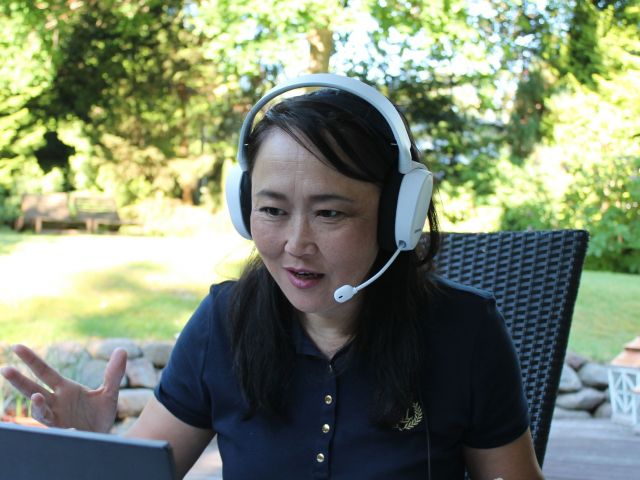The ultimate guide: CBS researchers write 17 editorials on how to conduct research

(Illustration by Emil Friis Ernst)
Becoming accustomed to all the dos and don’ts in the academic world is a steep learning curve. Therefore, CBS researchers have written 17 editorials with guides to everything from conducting cross-disciplinary research to turning research into teaching. The authors hope to change how research is carried out in future.
Researchers, no matter their field, have almost the same work routines.
Have a brilliant idea, get funding to turn the idea into research, conduct the research, write a scientific article, get the article published in a good journal, turn the research into teaching and disseminate the knowledge. Repeat.
Seems easy, right?
Well, not necessarily if you are a young scholar who is new to the academic world, explains Adam Lindgreen, Professor and Head of the Department of Marketing at CBS. Together with several researchers from CBS and elsewhere, he has written 17 editorials for the journal Industrial Marketing Management. Each editorial guides researchers on everything from getting a brilliant idea to funding it, conducting cross-disciplinary research, and how, ultimately, to turn the research into teaching.
“Of course, a lot has been written about how to write a scientific article, but it’s the collective impact of all the editorials together that makes a difference. For example, there’s an editorial on how to conduct cross-disciplinary research, and not much has been written about that, though it is becoming an increasingly important work area,” says Adam Lindgreen and continues:
“Both when it comes to getting original ideas, but also in terms of solving problems. You can’t address problems with a background in marketing only. You ought to combine it with engineering, psychology or biology.”
The idea of writing the editorials started with some notes and short pieces written in collaboration with the former editor of the journal Industrial Marketing Management. However, Adam Lindgreen and the editor quickly discovered that the subject involved more than a few scribbles here and there.
“We quickly realized that much more could be said and done. So one editorial led to another, co-authors joined in, and we believe that the editorials can actually help young scholars,” he says and continues:
“If I had been starting out now, I would have learned a lot from reading this. I would probably still have had problems, but becoming familiar with academia and how it works would have been easier.”
Michel van der Borgh, Associate Professor at the Department of Marketing at CBS, has co-authored two of the editorials; Undertaking Cross-Disciplinary Research and Getting Research Cited – and he also believes that together the editorials can help young scholars.
“They can help to prepare you for the issues and challenges you’ll meet, and by being prepared, you’ll find it’s easier to solve challenges. I, too, would have benefited from access to this information at the beginning of my career,” he says.
All the editorials have been combined in the book ‘Fast-Tracking Your Academic Career: A Guide for Mid-Career Scholars’.
What is success? Maybe it is not in the journals
The editorials have been written as steppingstones to becoming a successful scholar. But what is success? In academia, success often means getting original research published in top journals. However, things are changing, argues Michel van der Borgh.
“The really new and innovative ideas are often rejected, as they can be hard to publish. But maybe success can also be measured through the impact you have on society? There are many discussions about this right now, and that’s good because it can impact the research that we are doing and want to do,” says Michel van der Borgh.

He hopes that the discussions will make business schools get back to business – so to speak.
Back to the roots and core of what business schools were put in the world to do – namely to train people to lead businesses, as well producing knowledge for use in practice.
“Today, in some places, business schools have become ivory towers. We need to rediscover the core – training students to become professionals, and get more in touch with the practitioners who need our knowledge and help,” he says and continues:
“I hope the editorials will urge people to become engaged and increasingly aware of making research practice oriented, instead of just sitting in their ivory towers. Maybe this seed we have planted will grow in the direction of making academic work more pragmatic and utilized by practitioners,” he says.
Adam Lindgreen explains that right now, young scholars may have to wait to pursue really innovative and courageous ideas until they have more articles under their belts.
“When you have published more, you can afford to go for those kinds of projects. When you have proven that you can get research published, it gives you more space for maneuvering. And it’s important to get to the point where we can pursue crazy ideas. The ones that actually show our world in a new light,” he says.
A mix of great people
As Head of Department, Adam Lindgreen is well aware that, as a manager, he also has a role to play in scholars becoming successful.
Apart from supporting and guiding young scholars, as head of the department, he sees it as his duty to make sure that young scholars and other employees are in the right “ecosystem”, because only then can their good ideas, inspiration and collaboration flourish, he argues.
“I spend a lot of time on getting new colleagues to join our department. The right mix of people can help and inspire each other. Becoming a successful scholar really boils down to the people around you,” he says.
With the right people and the editorials at hand, Adam Lindgreen hopes it will be easier for academics to achieve success.
“I hope very much that the editorials help scholars to come up with relevant, important ideas, encourage funders to finance them, spark research that is useful for our students and generate societal value. If the editorials can help academics with some or all of this, I would be very pleased,” he says and finishes off:
“Chance favors the prepared mind. The better prepared, the more you know. Think about it. Why was Newton successful? Because he was standing on the shoulders of a lot of successful people.”



































































































































Comments